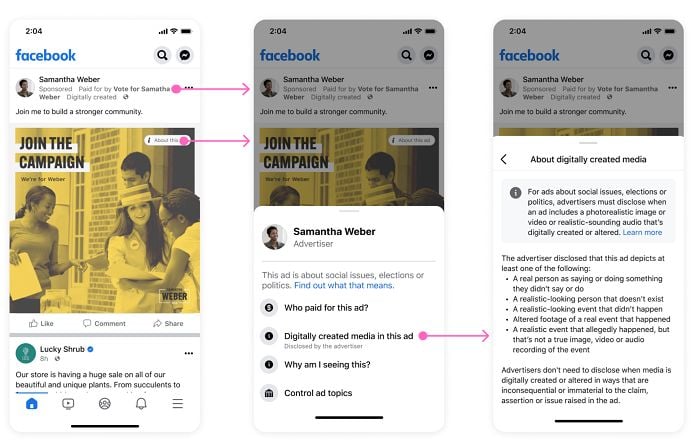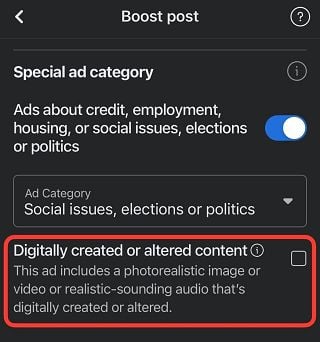Meta’s new disclosure requirements for digitally altered political ads are now in effect, with all advertisers looking to run ads about social issues, elections, and politics now required to indicate when their ad “contains a photorealistic image or video, or realistic sounding audio, that was digitally created or altered by AI or other methods”.

Meta originally announced the new policy last November, in order to get ahead of an expected flood of generative AI ads in the upcoming U.S. Election campaign.
Which has already begun. A recent campaign by U.S. Presidential candidate Ron DeSantis, for example, used an AI-generated image of Donald Trump hugging Anthony Fauci, as well as a voice simulation of Trump in another push.
With AI tools becoming better and better at producing realistic depictions, Meta, and every other platform, is now looking to implement new rules to disincentivize users from seeking to deceive with digitally created or modified messaging.
Both YouTube and TikTok have also implemented tags for AI-generated content, providing more transparency and clarity for viewers in-stream.
When setting up ads within selected categories, Meta advertisers will now be presented with this checkbox:

It’s an important update, which is only likely to become more relevant as AI tools continue to evolve, and eventually facilitate the creation of full video clips depicting unreal incidents.
Though there is still some risk that political advertisers may push misleading promotions in the final days, ahead of the election blackout, and run the risk of bans. Because who cares if you get banned after the fact? And the right AI-generated message could still sway voters ahead of the polls.
Which is why the blackout period is important. Based on previous elections, Meta will implement a political ads blackout a week before the poll, which should provide enough time to ensure any such claims or clips can be debunked before people vote.
But it’ll definitely be an element to watch this year.
Meta says that all ads will now be required to tick the box to indicate when an ad has been digitally altered, or risk ad removal and/or bans. Meta also notes that advertisers can now update their previously launched campaigns with its new AI disclosure tag.